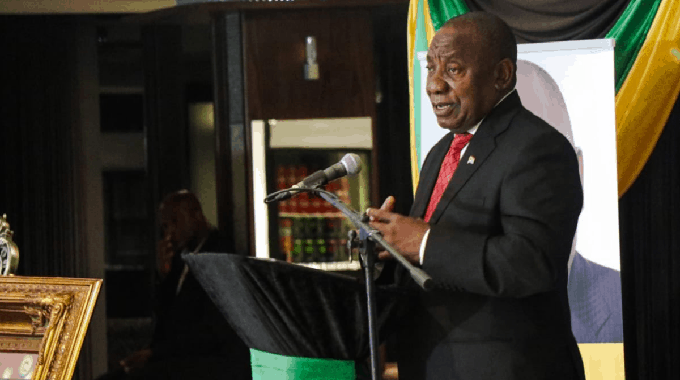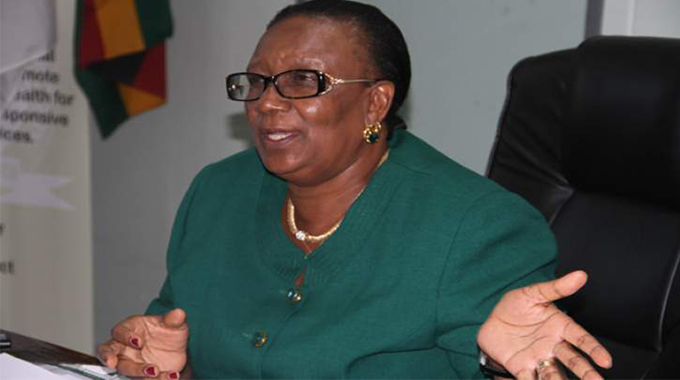Different roads feed into a city

Stephen Mpofu
Things almost anecdotal happened during elections in South Africa earlier this week and should be instructive to people elsewhere on the African continent, especially in countries that feign democratic maturity with all its salient ingredients — and such pretenders can be counted on both hands.
The three-day polls from Monday gave off a silent yet still very loud statement as embedded in the headline above: “We belong to different political parties but share a common vision about the emancipation of our people politically, economically and socially under the banner of ONE SOUTH AFRICA, ONE NATION.
Zimbabweans among foreigners observing the elections narrated to Zimbabweans who man Studio 7 of The Voice of America radio interesting things that took place during the South African elections in areas to which they were assigned.
[The ruling African National Congress, the Democratic Alliance and the Economic Freedom Fighters led by Julius Malema contested the elections.]
The Zimbabwean observers said that members of the three political parties standing separately in their demarcated areas crossed over the divides and “exchanged party regalia and drank tea together sharing sugar” in the process.
They reported no violent incidents and if the polls were peaceful throughout the country they will not fail in a postmortem to have passed the litmus test of free, fair and credible elections.
Wow wow wow! South African voters of different persuasions will therefore be justified in the global village if they walk with their heads thrust high in the air after those exemplary elections.
Therefore the truth should not be lost on ruling and opposition parties in every country on our continent that, despite their divergent views or strategies, they must push an identical ideology of leading their nations into a brave new future through common developmental initiatives.
That way a peaceful swapping of power at the very top will become a norm with a party possessing brighter ideas for a people’s future being given the chance to lead a nation as people realise that violence as a means of unsitting an incumbent governing party is wont to beget violence.
Back to South Africa. In the run-up to the elections President Cyril Ramaphosa denounced racism but without mentioning the Boers whose racist apartheid policy when still in power relegated blacks in that country to virtual animals with little or no rights to flaunt in their native country.
He also told South Africans to treat foreigners seeking refuge in that country as fellow human beings.
Foreigners including Zimbabweans in large numbers in that country have in the past become victims of xenophobia by South Africans accusing the foreigners of “accepting lower salaries for jobs”, and therefore depriving South Africans of employment and of “taking our women”.
It is to be hoped that foreigners seeking refuge from political persecution at home or from daunting challenges of joblessness will enjoy fair treatment in the future after Ramaphosa’s address.
It should be realised that South Africa has for many, many years become a traditional place of refuge for foreigners running away from various challenges in their native countries.
Our own President, Cde Emmerson Mnangagwa, briefly sought refuge in South Africa in 2017 after being sacked by then President Robert Mugabe as Vice President and becoming aware of threats on his life as well as on his family, to lead Zanu-PF after Mr Mugabe resigned his Presidency following threats to impeach him.
But perhaps the most famous person to seek refuge in South Africa many, many, many years ago was Hastings Kamuzu Banda from the then Nyasaland who jumped the border across the Limpopo, stayed for a while in South Africa and eventually found his way to the United States of America where he advanced his education, acquired a doctorate and then proceeded to Britain, then his country’s colonial power, before going on to independent Ghana, previously The Gold Coast.
It was from West Africa that Dr Banda returned home to lead his country to independence as Malawi in 1964 following the break of the Federation of Rhodesia and Nyasaland — the former including Northern Rhodesia, now Zambia and our own country as Southern Rhodesia.
Again back to South Africa. The natives of that country should realise that foreigners who seek employment in that country actually help develop the economy — the biggest in Southern Africa at present — just as different tributaries feed into a swollen big river or lake with its diverse, aquatic vines.
On the question of foreigners accepting low paying jobs, it is obviously necessary for employers in that country to raise the minimum wage so that their workers do not avenge their lower incomes on foreigners holding down lower-paying jobs.
The question of foreigners “taking away” South African women from that country’s men should be viewed in two ways. If South African women marry foreigners that will obviously strengthen family relations between South Africans and the foreigners and there is nothing wrong with that.
But foreigners who take South African women as concubines should die to the flesh as prostitution is an evil before the eyes of God, and as anathema in the eyes of human beings.










Comments